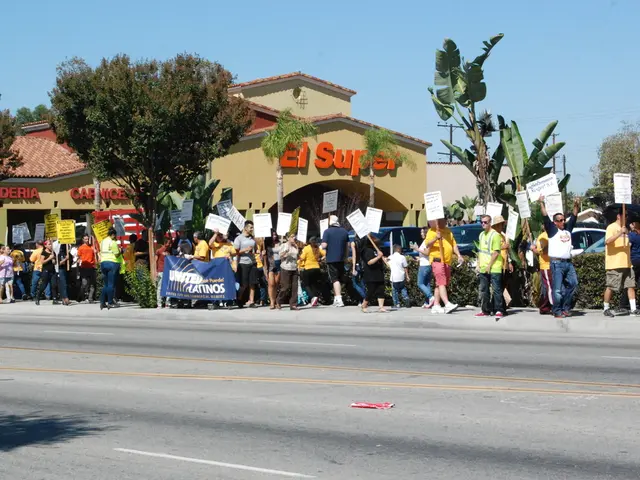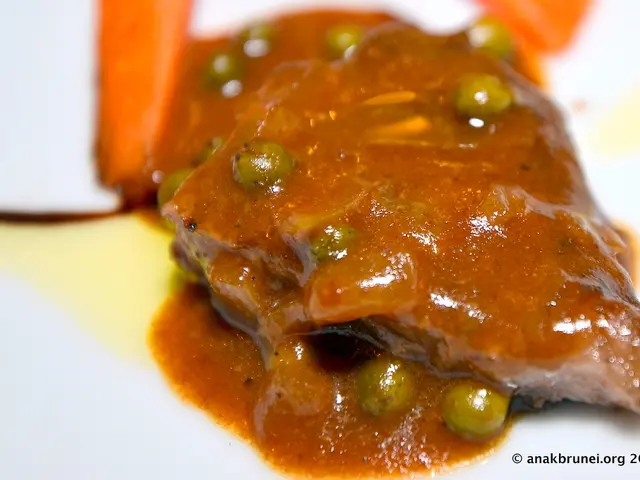Drug-related gang violence in Brussels remains unchecked due to political indifference, according to the city's top prosecutor.
The city of Brussels continues to grapple with a surge in drug-related violence and shootings, with the situation escalating and innocent civilians at risk. Brussels Public Prosecutor, Julien Moinil, has publicly called for substantial government action and more resources to combat this ongoing issue.
Moinil's criticism of the Federal Government includes underfunding of police and judicial resources, broken surveillance networks, and insufficient manpower. Despite pledges for a zero-tolerance approach and unifying Brussels’ six police zones, only about 30 extra police officers have been deployed.
The Brussels Minister-President, Rudi Vervoort, responsible for public order and coordination against drug trafficking in Brussels, has not publicly responded to these appeals, and calls for federal funding remain unmet.
Moinil and Interior Minister Bernard Quintin acknowledge that the problem is systemic and requires a systemic response. This includes strengthening judicial and police capacity, faster deportation of foreign criminals without residence permits, and focused law enforcement on known drug dealer networks.
Persistent problems in Belgium’s prison system, such as overcrowding, understaffing, violence, and drug trafficking inside prisons, complicate efforts to contain organized crime and reduce recidivism.
Local communities, such as Molenbeek and other Brussels districts, demand more decisive action and improved safety, highlighting the urgent need for a reinforced police presence and prevention initiatives targeting drug trafficking hotspots.
Despite authorities recognising the crisis and outlining priorities, the Belgian government has so far only made limited incremental adjustments rather than comprehensive new measures to decisively curb drug gang and gun violence in Brussels.
The city has been rocked by shootings linked to drug gangs in recent years. According to police data, there were around 92 shooting incidents in Brussels last year, resulting in nine deaths and 48 injuries. So far this year, there have been 57 shootings, including 20 since the start of the summer.
The port in Antwerp, 55 kilometers north of Brussels, is a hub for European imports of cocaine. Moinil has demanded a robust health policy to address drug abuse in the city and has condemned political inaction over gun violence linked to drug gangs.
The city of Brussels has not been spared from drug-related violence, with shootings being a recurring issue. Dozens of criminal networks are believed to be operating in the city. As the fight against violence continues, the need for concrete and large-scale additional measures and resources remains urgent.
[1] Belga News Agency, "Moinil calls for urgent action against drug trafficking and violence in Brussels", 2021. [2] VRT NWS, "Moinil: More resources needed to combat drug trafficking and violence in Brussels", 2021. [3] De Standaard, "Moinil calls for decisive action against drug trafficking and violence in Brussels", 2021. [4] Le Soir, "Problems in Belgium's prison system hinder efforts to combat organized crime", 2021.
Politics and general-news have been dominated by discussions surrounding the escalating drug-related violence and gun crimes in Brussels. The Brussels Public Prosecutor, Julien Moinil, has been vocal about the need for substantial government resources to combat this ongoing issue, specifically addressing underfunding of police and judicial resources, broken surveillance networks, and insufficient manpower. Despite calls for action, federal funding remains unmet, with only minimal incremental adjustments made by the Belgian government. Meanwhile, crime-and-justice issues persist, including persistent problems in Belgium’s prison system and the operating of numerous criminal networks within the city.






